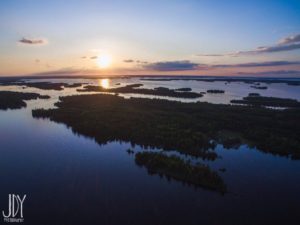Federal Agencies Halt Sulfide Mine on the Edge of the Boundary Waters Canoe Area Wilderness, Upstream of Voyageurs
Yesterday the Obama Administration announced it would not renew federal mineral leases critical to the development of the Twin Metals copper-nickel mine. Citing broad concerns from thousands of public comments and input about potential impacts of sulfide mining on the watershed, fish and wildlife, and the recreation economy, the U.S. Department of the Interior and the Department of Agriculture took actions that denied an application for renewal of expired leases, as well as initiated steps to withdraw key portions of the watershed from new mineral permits and leases. This major move could be the beginning of long-term protection for the watershed from sulfide-ore copper mining.

It is well established that acid mine drainage is a significant environmental risk at sulfide ore mine sites like the one proposed for these leased lands. Even small amounts of mine contamination leaking into the Rainy River Drainage Basin would impact Voyageurs National Park’s ecosystem for decades and threaten its pristine waters and wildlife, world-class fishing, and the family-owned small businesses that serve park visitors.
Read the announcements from the Department of the Interior and the Bureau of Land Management, as well as additional coverage of this landmark watershed moment by: Wilderness News, MinnPost, and The Wall Street Journal.
The expired mineral leases held by Twin Metals were initially issued in 1966, before the Clean Water and Clean Air Acts existed, as well as other laws requiring review of environmental impacts. As a result, these leases never underwent environmental review.
The upcoming environmental review initiated by the US Forest Service and BLM will be a comprehensive analysis to determine whether this watershed is the wrong place for sulfide-ore copper mining and should be removed from the federal mining program for 20 years. Significant public input and scientific review lie ahead. The voices of BWCAW and Voyageurs National Park neighbors and visitors will be critical in the next two years.
